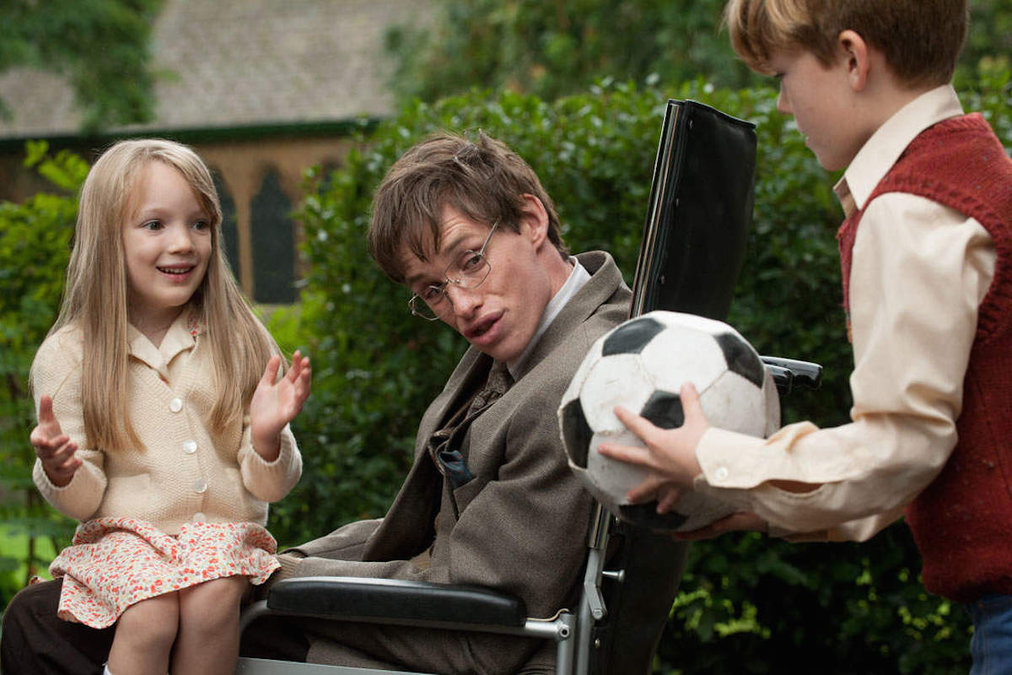Talking about Hawking.
At the tragic centre of James Marsh’s The Theory of Everything is an intellectually gifted man who made enormous contributions to the world of science but was robbed of the basic human functions that we all take for granted. The film will draw inevitable comparisons to the other Oscar-nominated film about a British intellectual that was released towards the end of last year. In many ways the comparison is quite fair. Both The Theory of Everything and Morten Tyldum’s The Imitation Game are examinations of men with an extraordinary capacity for thought. They also both favour melodrama in place of any real observation of the work that made their subjects so important. Alan Turing’s process of cracking the Enigma coding machine in World War 2 was essentially reduced to a few throwaway lines. The Theory of Everything isn’t so much more enlightening about Stephen Hawking’s work in physics, but then how do you convey a subject like time with an ironic handicap like time constraints?
Who are we without our thoughts? When he is a young man, Hawking (Eddie Redmayne) is robbed of every function but his ability to think. In 1963, while attending a New Years Eve party, Hawking meets Jane Wilde (Felicity Jones), a fellow Cambridge student who is studying literature. The two hit it off quickly and begin a relationship. While pursuing his research on a subject no less broad than time, Hawking’s muscles give out, causing him to fall and hit his head. He is diagnosed with motor neuron disease and given two years to live. His muscles will become uncontrollable and he will start to lose the ability to walk, talk, eat or move most of his body (but not his penis, as we’re perhaps unnecessarily informed). His brain, Hawking is informed, will remain unchanged. Initially overcome by the news, Hawking learns to focus his energy into life and work thanks to the support of Wilde, who decides to marry him despite his health.
The wonder of Stephen Hawking’s story is that he embraces the one function he is left with (well two, but he embraces the other one as well). Eddie Redmayne manages to project Hawking beyond physical caricature, powerfully suggesting a real man who was able to thrive despite his Though Marsh is clearly more interested in the romantic melodrama that punctuated Hawking’s life, there’s still a cursory attempt to convey some of the importance of Hawking’s theories as well as the considerable cognitive prowess they must have required. The pursuit of ideas and intellectual empowerment can make for compelling cinema, but The Theory of Everything, like The Imitation Game before it, feigns interest in these concepts without ever genuinely committing.
Scientists are unsung heroes in mainstream cinema, perhaps because Hollywood is yet to figure out how equations and algorithms translate to high box office returns. The answer is probably to trust in the inherently fascinating nature of the questions being asked by men like Hawking, but for now these diluted versions of compelling ideas might have to do. Alan Turing may never have punch his supervisors or married Kiera Knightly and Stephen Hawking may never have been as charming as all that but that scientists are being celebrated at all is, for the time being, a refreshing change of pace.
6/10
For more Reviews, click here. If you’re digging ReelGood, sign up to our mailing list for exclusive content, early reviews and chances to win big!

